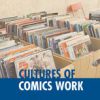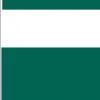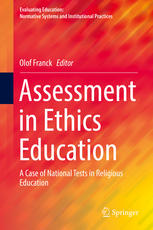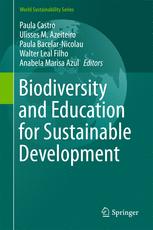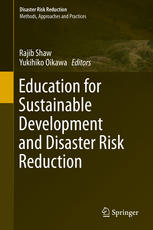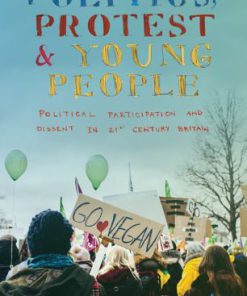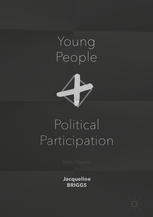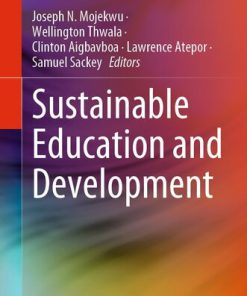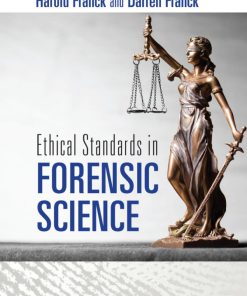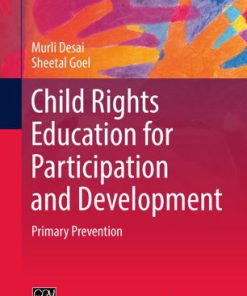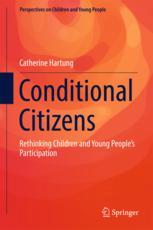Ethical Literacies and Education for Sustainable Development Young People Subjectivity and Democratic Participation 1st Edition by Olof Franck, Christina Osbeck 3319490095 9783319490090
$50.00 Original price was: $50.00.$25.00Current price is: $25.00.
Ethical Literacies and Education for Sustainable Development: Young People, Subjectivity and Democratic Participation 1st Edition by Olof Franck, Christina Osbeck – Ebook PDF Instant Download/DeliveryISBN: 3319490095, 9783319490090
Full download Ethical Literacies and Education for Sustainable Development: Young People, Subjectivity and Democratic Participation 1st Edition after payment.
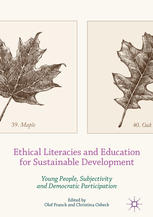
Product details:
ISBN-10 : 3319490095
ISBN-13 : 9783319490090
Author: Olof Franck, Christina Osbeck
This book explores the ethical dimensions surrounding the development of education for sustainable development within schools, and examines these issues through the lens of ethical literacy. The book argues that teaching children to engage with nature is crucial if they are to develop a true understanding of sustainability and climate issues, and claims that sustainability education is much more successful when pupils are treated as moral agents rather than being passive subjects of testing and assessment. The collection brings together a range of fresh and creative perspectives on how issues around ethical literacies can be elaborated and expanded with regard to democratic sustainability education. The use of children´s books in teaching about sustainability is carefully explored, as are the ethical and aesthetic dimensions of environmental education. Including an afterword by Arjen Wals, Professor of Transformative Learning for Socio-Ecological Sustainability, the book will be of great interest to students and researchers in the field of sustainability education.
Ethical Literacies and Education for Sustainable Development: Young People, Subjectivity and Democratic Participation 1st Table of contents:
Highlighting Ethics, Subjectivity and Democratic Participation in Sustainability Education: Challe
Introduction: Challenges of Democratic Education
Classifying Ethics Education
Rationality and Prescriptive Dimensions of Ethics Education
Modelling Categories of Ethics Education
Education from Sustainability
Sustainability Education and the Transmission of Values
Aims and Outcomes, Processes and Results
Equality as a Prerequisite in the Relational Educational Process
Children as Knowledgeable Equals
Being and Becoming “Sustainabilists”
Discussion
Note
References
Philosophizing with Transdisciplinarity, Relational Knowledge and Ethics in Education for Sustai
Introduction
Method
Epistemic Beliefs and Education for Sustainable Development
Relational Conceptualizations of Education for Sustainability
Relational and Epistemological Aspects of Knowledge and Knowing in Education for Sustainable De
Relational Ethics in the Transdisciplinary Approach to Sustainable Development
Independent Self and Relational Being
The Educative Moment: Le Moment in an Educational Context
Conclusions
References
Pupils’ Views on Moral Competence in School
Introduction
Previous Research
Theory
The Interviews
Interpretation
Findings
Reasons Why Some Pupils Abuse Others
Bad Circumstances at Home
A Need to Abuse Another
Feeling Forced to Abuse Another
Reasons Why Some Pupils Do Not Abuse Others
Ethical Responsibility
Reluctance to Be Told Off
The Teacher’s Watching Eyes
How to Prevent Pupils from Abusing Others
Rules and Probation
Improve Pupils’ Insight Regarding Consequences
Self-Confidence and Trust in Class
Discussion
References
Discourses of Available and Sustainable Lives: Ethical Literacy Offered to Tweens Through Fiction
Theoretical Framework
Sustainability
Ethical Literacy
Expansion of Ethical Literacy Through Fiction Reading
The Context of Previous Research
Materials and Methods
The Contexts of the Four Books
Available Lives: Discourses of Communities and a Competent Actor
Greg Heffley’s Journal
Room 213
The Silver Boy
An Island in the Sea
The Offered Available Lives of the Four Books: A Brief Summary
Are the Offered Available Lives Also Sustainable Lives?
Ending Remarks
References
Fiction at School for Educational Purposes: What Opportunities Are Students Given to Act as Moral
The School Context as a Discourse of “Acts”
Children’s Literature as a Repetition of Acts
Studying Extracts from Children’s Literature
Performing the Child Through Extracts in Textbooks
Extracts with Exercises in the Textbooks
Performativity Through Extracts
Fiction at School and the Opportunity for Students to Act as Moral Subjects
References
An Aesthetic and Ethical Perspective on Art-Based Environmental Education and Sustainability fr
Introduction
The Phenomenological Perspective and the Life-World
Being-in-the-World
Horizon
Ethical Phenomenology and Experience
Nature as Otherness and Plants as Objects
Place and Plants as Objects
Art-Based Environmental Education
Art as a Teaching and Learning Tool
Education and Sustainability
Concluding Thoughts
References
Challenging and Expanding the Notion of Sustainability Within Early Childhood Education: Perspect
Introduction
Historical Beginnings in Sustainability Education and its Underpinning Policy Discourses
Curricular, Pedagogical and Research Approaches Within Early Childhood Education for Sustainabili
Post-humanism and/or New Materialism as a Theoretical Framework
Early Childhood Education for Sustainability Through the Lens of Post-humanism/New Materialism
Some Concluding Remarks
The Way Forward
References
Windows on a Changing World: Using Children’s Literature as an Aesth/Ethical Trope in Early Y
Introduction
Small Worlds and the Big World
Both “Nowhere and Here”
Something or Somewhere Else
References
Aesthetic Experiences Related to Living Plants: A Starting Point in Framing Humans’ Relationshi
Introduction
Dewey’s Concept of Experience
Aesthetics and Sensory Experiences in Science Teaching and Learning
An Empirical Example: 11-Year-Old Students Observing Blueberry Plants
Aesthetics and Ethics Related to Environmental Awareness
An Empirical Example: Student Teachers Observing and Taking Care of Pea Plants
Conclusions and Discussion
People also search for Ethical Literacies and Education for Sustainable Development: Young People, Subjectivity and Democratic Participation 1st:
environmental literacy and sustainability
ethical literacy definition
sustainable development ethic
ethical literacy
ecoliteracy and sustainable development
Tags: Ethical Literacies, Education, Sustainable Development, Young People, Subjectivity, Democratic Participation, Olof Franck, Christina Osbeck
You may also like…
Education Studies & Teaching
Politics & Philosophy
Biodiversity and Education for Sustainable Development 1st Edition Paula Castro
Education Studies & Teaching
Education for Sustainable Development and Disaster Risk Reduction 1st Edition Rajib Shaw
Politics & Government
Politics & Philosophy
Jurisprudence & Law - Criminal Law & Procedure
Ethical Standards in Forensic Science 1st Edition Harold Franck (Author)
Politics & Philosophy - Social Sciences


